-
 Bitcoin
Bitcoin $116400
-0.36% -
 Ethereum
Ethereum $4033
3.40% -
 XRP
XRP $3.302
-1.26% -
 Tether USDt
Tether USDt $1.000
-0.02% -
 BNB
BNB $796.1
1.67% -
 Solana
Solana $177.8
1.89% -
 USDC
USDC $0.9999
0.00% -
 Dogecoin
Dogecoin $0.2314
4.09% -
 TRON
TRON $0.3381
0.14% -
 Cardano
Cardano $0.7989
1.22% -
 Stellar
Stellar $0.4496
-1.84% -
 Chainlink
Chainlink $20.42
9.42% -
 Hyperliquid
Hyperliquid $41.17
0.88% -
 Sui
Sui $3.914
3.77% -
 Bitcoin Cash
Bitcoin Cash $584.7
1.52% -
 Hedera
Hedera $0.2632
-0.54% -
 Avalanche
Avalanche $24.09
3.40% -
 Ethena USDe
Ethena USDe $1.001
-0.02% -
 Litecoin
Litecoin $123.2
1.33% -
 Toncoin
Toncoin $3.318
-0.04% -
 UNUS SED LEO
UNUS SED LEO $8.984
-0.05% -
 Shiba Inu
Shiba Inu $0.00001323
2.85% -
 Uniswap
Uniswap $10.90
4.41% -
 Polkadot
Polkadot $3.999
3.34% -
 Dai
Dai $1.000
0.01% -
 Cronos
Cronos $0.1630
9.64% -
 Bitget Token
Bitget Token $4.484
0.82% -
 Monero
Monero $272.4
2.44% -
 Pepe
Pepe $0.00001173
6.03% -
 Aave
Aave $290.8
2.88%
What is Chainlink (LINK)
Chainlink (LINK) is a decentralized oracle network that connects smart contracts with real-world data, enhancing blockchain functionality across DeFi, insurance, gaming, and supply chain applications.
Jul 14, 2025 at 07:01 am
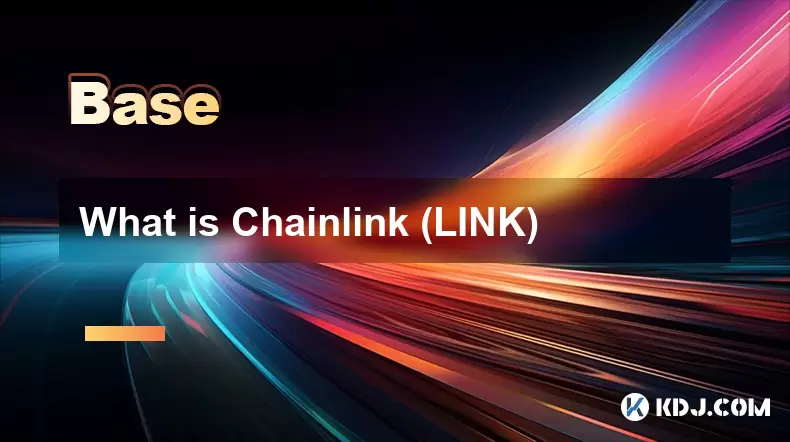
Understanding the Basics of Chainlink (LINK)
Chainlink is a decentralized oracle network designed to bridge the gap between smart contracts on blockchain platforms and real-world data sources. Smart contracts, which are self-executing agreements with the terms directly written into code, often require external data to function effectively. However, blockchains themselves cannot access off-chain information such as weather reports, stock prices, or sports results. This is where Chainlink comes in, acting as a secure and reliable middleware that connects smart contracts with external data feeds, APIs, and payment systems.
The native cryptocurrency of the Chainlink network is LINK, an ERC-20 token used to incentivize node operators who provide accurate and timely data. These node operators stake LINK tokens as collateral to ensure honest behavior, and they are rewarded for providing quality service while being penalized for dishonesty.
The Role of Oracles in Blockchain Ecosystems
In traditional blockchain environments, smart contracts operate within closed ecosystems. They can only interact with data stored on the blockchain itself. This limitation restricts their functionality and use cases. Oracles act as intermediaries, fetching data from external sources and delivering it to smart contracts in a secure and tamper-proof manner.
There are two main types of oracles: inbound and outbound. Inbound oracles deliver external data to the blockchain, while outbound oracles send data from the blockchain to external systems. Chainlink primarily focuses on inbound oracles, ensuring that smart contracts receive accurate and trustworthy information from the outside world.
What sets Chainlink apart is its decentralized oracle network architecture. Instead of relying on a single data source, Chainlink aggregates data from multiple independent oracles, reducing the risk of manipulation or failure.
How Chainlink Ensures Data Integrity and Reliability
One of the biggest challenges in oracle networks is ensuring data integrity and reliability. If a single oracle provides incorrect or malicious data, it could compromise the entire smart contract system. To mitigate this risk, Chainlink employs several mechanisms:
- Decentralization: Multiple oracles fetch the same data independently.
- Reputation System: Node operators are rated based on performance history.
- Service Level Agreements (SLAs): Users can define specific requirements for data delivery.
- Cryptographic Proof: Data is verified through cryptographic techniques before being accepted by the smart contract.
These features collectively enhance the trustworthiness of the data delivered to smart contracts, making Chainlink one of the most robust oracle solutions in the blockchain space.
Use Cases and Applications of Chainlink
Chainlink has been integrated into numerous blockchain projects across various industries due to its flexibility and reliability. Some prominent use cases include:
- DeFi (Decentralized Finance): Many DeFi protocols rely on Chainlink oracles to fetch real-time asset prices for lending, borrowing, and trading platforms.
- Insurance: Parametric insurance contracts use Chainlink to trigger automatic payouts based on verifiable events like flight delays or weather conditions.
- Gaming and NFTs: Games and NFT platforms utilize Chainlink to generate random numbers for loot drops or digital collectibles.
- Supply Chain Management: Real-time tracking and verification of goods using external sensor data.
Each of these applications demonstrates how Chainlink enhances the functionality of smart contracts by enabling them to react intelligently to real-world events.
How to Interact with Chainlink as a Developer
For developers looking to integrate Chainlink into their smart contracts, the process involves several key steps:
- Set up a development environment using tools like Truffle or Hardhat.
- Deploy a smart contract that inherits Chainlink’s client contract.
- Define the external data source by specifying the API endpoint and the path to the required data.
- Fund the contract with LINK tokens to pay the oracle network.
- Call the request method to initiate a data request.
- Handle the response in a callback function once the data is received.
Developers must also consider gas costs, security practices, and error handling when working with external data sources. Testing is crucial, and Chainlink provides testnet versions of its oracles along with faucet services for obtaining test LINK tokens.
Frequently Asked Questions (FAQs)
Q1: Can Chainlink be used on blockchains other than Ethereum?
Yes, Chainlink supports multiple blockchain networks including Binance Smart Chain, Polygon, Avalanche, and others. Developers can integrate Chainlink oracles across different chains using standardized interfaces.
Q2: How does Chainlink handle data privacy concerns?
Chainlink allows users to choose private or public data sources. For sensitive applications, privacy-preserving techniques like threshold signatures and zero-knowledge proofs can be employed to protect data confidentiality.
Q3: What happens if all oracles return incorrect data?
Chainlink mitigates this risk by aggregating responses from multiple oracles and filtering outliers. However, if all oracles fail or return incorrect data, the smart contract may not execute correctly. It's essential to select reputable oracle providers and set appropriate thresholds.
Q4: Is there a minimum amount of LINK required to run a node?
There is no strict minimum, but running a Chainlink node typically requires sufficient LINK to participate in jobs and build a reputation. The more LINK staked, the higher the chances of being selected for data requests, which increases earning potential.
Disclaimer:info@kdj.com
The information provided is not trading advice. kdj.com does not assume any responsibility for any investments made based on the information provided in this article. Cryptocurrencies are highly volatile and it is highly recommended that you invest with caution after thorough research!
If you believe that the content used on this website infringes your copyright, please contact us immediately (info@kdj.com) and we will delete it promptly.
- Decentralized Data: Taking the Driver's Seat in the Data Economy
- 2025-08-09 14:30:11
- Bitcoin vs. Gold: The Store-of-Value Showdown in the Digital Age
- 2025-08-09 14:30:11
- BlockDAG, Stellar, and Crypto Adoption: Navigating the Hype
- 2025-08-09 14:50:12
- Litecoin Price Surge: Riding the Wave of Institutional Interest and ETF Hopes
- 2025-08-09 14:50:12
- Chainlink's Wild Ride: Whales Are Still Loading Up on LINK!
- 2025-08-09 15:10:11
- Ruvi AI: Solana's New Challenger Dominating Token Sales with AI Innovation
- 2025-08-09 14:55:15
Related knowledge
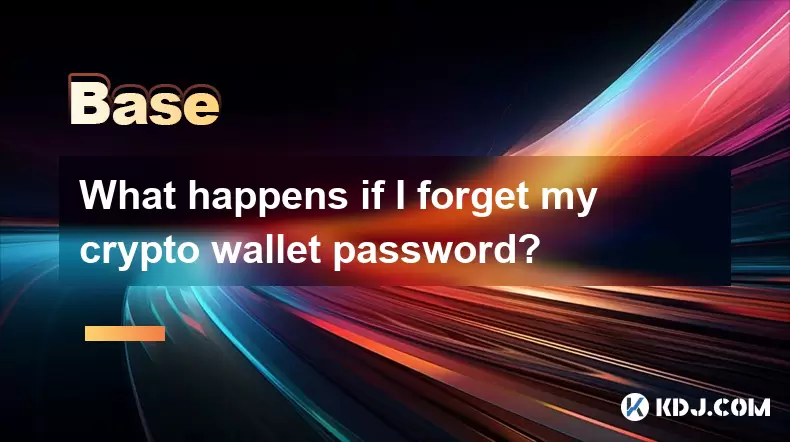
What happens if I forget my crypto wallet password?
Aug 09,2025 at 08:50am
Understanding the Role of a Crypto Wallet PasswordA crypto wallet password serves as a critical security layer that protects access to your digital as...
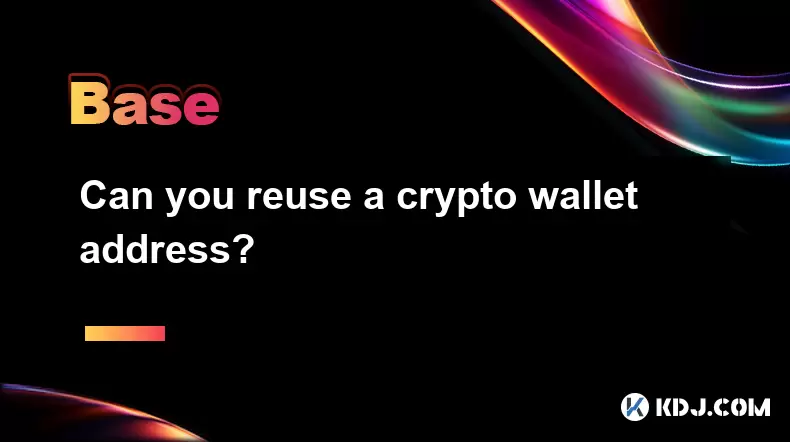
Can you reuse a crypto wallet address?
Aug 08,2025 at 03:49pm
Understanding Wallet Addresses in CryptocurrencyA crypto wallet address is a unique identifier used to send and receive digital assets on a blockchain...
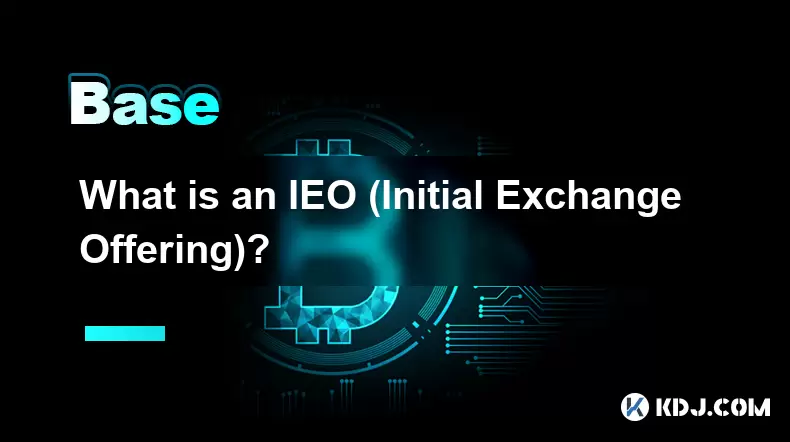
What is an IEO (Initial Exchange Offering)?
Aug 09,2025 at 06:22am
Understanding the Concept of IEO (Initial Exchange Offering)An Initial Exchange Offering (IEO) is a fundraising method used by blockchain-based projec...
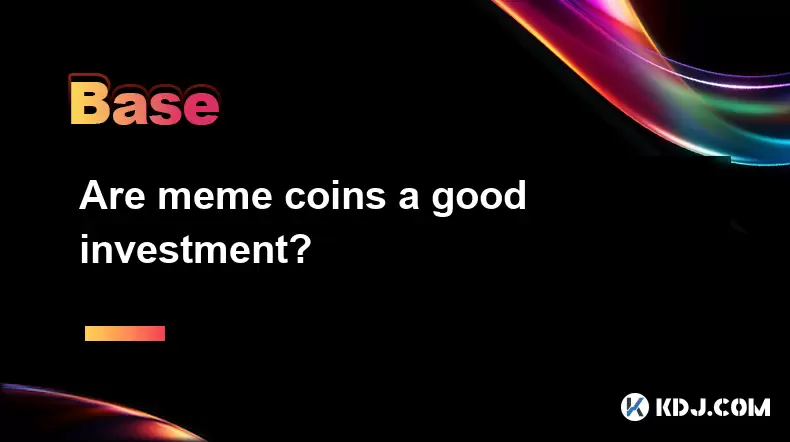
Are meme coins a good investment?
Aug 08,2025 at 11:36pm
Understanding Meme Coins and Their OriginsMeme coins are a category of cryptocurrencies that originated from internet humor or viral trends rather tha...
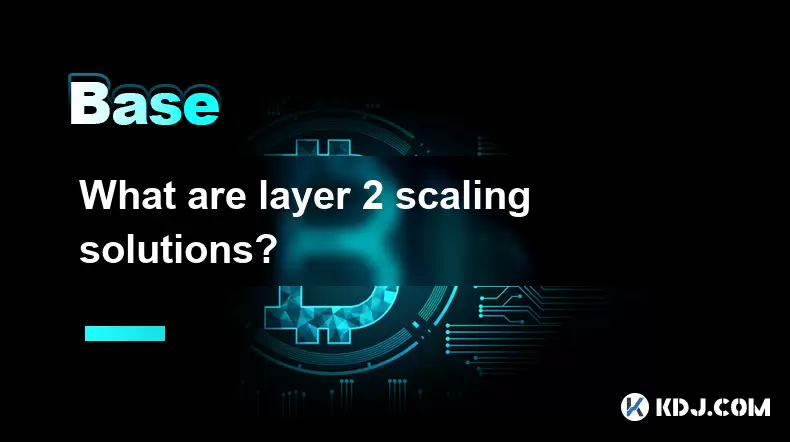
What are layer 2 scaling solutions?
Aug 09,2025 at 04:07am
Understanding Layer 2 Scaling Solutions in CryptocurrencyIn the world of blockchain and cryptocurrencies, scalability has long been a pressing challen...
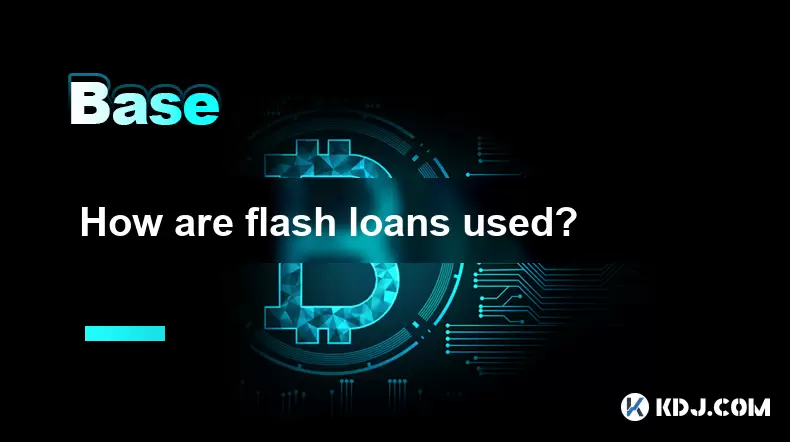
How are flash loans used?
Aug 08,2025 at 01:08pm
Understanding Flash Loans in Decentralized FinanceFlash loans are a unique innovation within the decentralized finance (DeFi) ecosystem, allowing user...

What happens if I forget my crypto wallet password?
Aug 09,2025 at 08:50am
Understanding the Role of a Crypto Wallet PasswordA crypto wallet password serves as a critical security layer that protects access to your digital as...

Can you reuse a crypto wallet address?
Aug 08,2025 at 03:49pm
Understanding Wallet Addresses in CryptocurrencyA crypto wallet address is a unique identifier used to send and receive digital assets on a blockchain...

What is an IEO (Initial Exchange Offering)?
Aug 09,2025 at 06:22am
Understanding the Concept of IEO (Initial Exchange Offering)An Initial Exchange Offering (IEO) is a fundraising method used by blockchain-based projec...

Are meme coins a good investment?
Aug 08,2025 at 11:36pm
Understanding Meme Coins and Their OriginsMeme coins are a category of cryptocurrencies that originated from internet humor or viral trends rather tha...

What are layer 2 scaling solutions?
Aug 09,2025 at 04:07am
Understanding Layer 2 Scaling Solutions in CryptocurrencyIn the world of blockchain and cryptocurrencies, scalability has long been a pressing challen...

How are flash loans used?
Aug 08,2025 at 01:08pm
Understanding Flash Loans in Decentralized FinanceFlash loans are a unique innovation within the decentralized finance (DeFi) ecosystem, allowing user...
See all articles

























































































